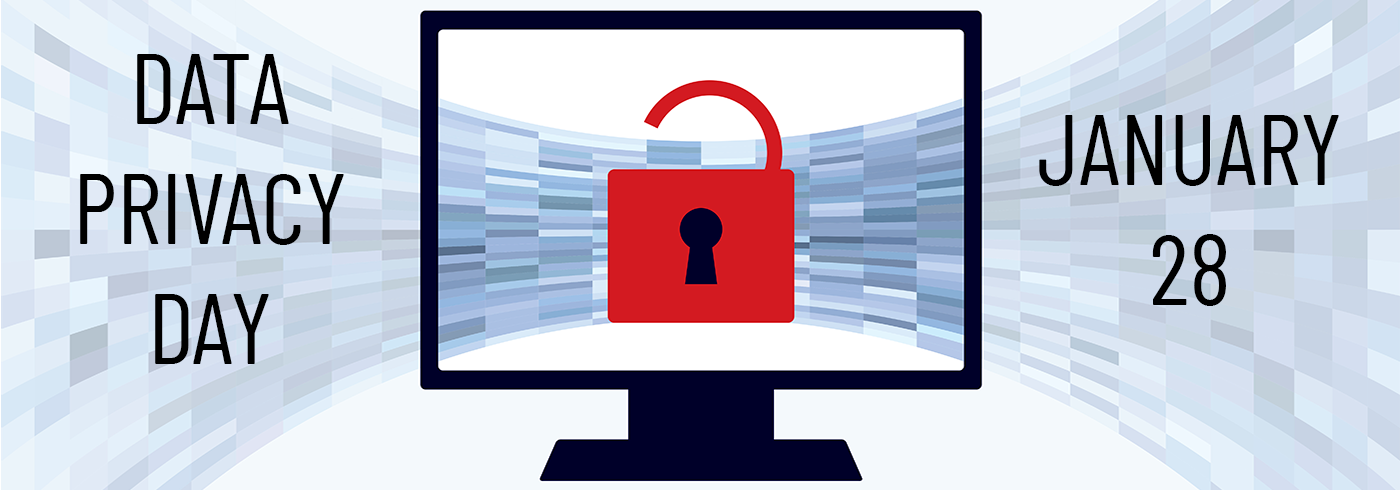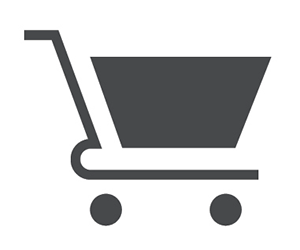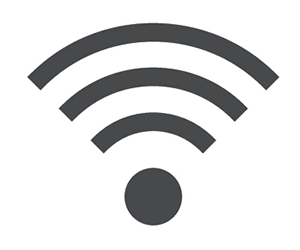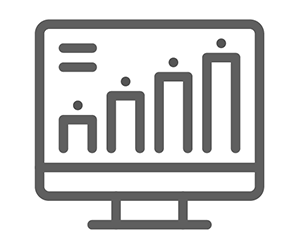
Data Privacy Day
Data Privacy Day 2023
The Region of Durham is proud to support Data Privacy Day, internationally recognized annually on January 28, to promote global online safety, security, and privacy. The Region aims to help spread awareness about digital data privacy and provide resources to safely navigate and manage personal information.
The day advocates respecting the privacy of individuals and encourages businesses to be more transparent about how they handle user data. This event raises awareness of the impact technology has on privacy. Moreover, Data Privacy Day reminds all of us how important it is for each and every one of us to keep privacy in mind.
Please take a moment to register for a webinar, explore privacy resources, and learn something new about the importance of protecting personal information with the tools and knowledge shared below.
Register for an event

National Cybersecurity Alliance
(12-1p.m.)
Data: The Story of You

ISACA
(12-1 p.m.)
The State of Privacy 2023

National Cybersecurity Alliance
(12-1:30 p.m.)
Designing a Privacy First World
Learning resources

- Privacy, Data Protection and Cybersecurity: 2022 Yearly Review of Lessons Learned in Canada and Abroad BLG
- Australia passes Privacy Legislation Amendment Bill 2022
- Information and Privacy Commissioner of Ontario’s What’s New Page
- Office of the Privacy Commissioner
- Bill C-27
- Bill C-26
- Quebec Privacy Act (Bill 64 Amendments)
Popular scams to be aware of
| Gift card scams |
|
Gift card scams typically occur when you receive an unknown and usually ‘urgent’ email or call requesting payment through gift cards. Gift cards are usually easier to find and buy and have fewer buyer protections compared to some other payment options making them popular with scammers. Once the gift card is purchased and the PIN is provided to the scammer, the scammer then has your money. Usually, scammers come up with elaborate stories to get you to pay them with gift cards which can include urgent threats and pressure and specifications on the exact gift card to purchase online, such as putting money on an eBay, Google Play, or iTunes gift card; instructions on purchasing the gift card from a specific store or vendor such as Walmart, Target, or Esso; and sometimes even spreading it out on multiple gift cards stores so that the store does not get suspicious. How to avoid gift card scams
|
| Job offer scams |
|
Job offer scams typically occur when you receive an unknown email offering a job, often not in your area of expertise and from an unknown source. The source may request information from you and after acceptance of the job and issuing you your first paycheque, may require you to send back some money due to an overpayment. Once the money is sent ‘back’ to your ‘employer’, it is only then discovered the original cheque or money order was fake, and you are out of the money you sent. How to avoid job offer scams
|
| Lottery scams |
|
Lottery scams typically occur when an email claiming you have won a substantial payout from a less known lottery makes its way into your inbox. It goes further to state that in order to claim your prize, you will be asked to pay a fee, often for insurance costs, government taxes, bank fees, and/or courier charges, and asks you to send personal details for verification. Another version of the scam involves gaining access to someone’s social media account and contacting friends and family members to advise everyone that they have all won the lottery. The individual is then provided an email address through which they will receive instructions on how to claim their prize. How to avoid lottery scams
|
| Phishing scams |
|
Phishing occurs when scammers use email or text messages to try to steal passwords, account numbers, or other pieces of personal information; once obtained, scammers can utilize the information for fraudulent activity through email, financial institutions, and other means. Phishing attacks are widely recognized as the top cause of data breaches. Scammers can easily send seemingly legitimate, deceptive emails with malicious links and attachments. Once an individual clicks on this malicious link, a scammer is able to gain access to their device. Scammers often update their tactics to keep up with the latest news or trends and within the larger umbrella term of phishing falls other terms such as:
How to avoid social media scams
|
| Social media scams |
|
Social media scams can come in different forms. Beware of random friend requests from unknown individuals. In addition, a common social media scam includes quizzes found online which generally gather information from you under the appearance of giving you a prize or providing you with your personality type or celebrity look alike. The quiz developer can obtain information from your profile, friends list, and IP address. This can then be used for identity theft or sold to third parties. How to avoid social media scams
|
| Telephone scams |
|
Telephone scams in the form of robocalls occur when you answer the phone and hear a recording rather than a live person speaking. While pre-recorded messages can deliver useful information, such as appointment reminders or flight cancellations, robocall scams are disguised to impersonate a business, government agency, bank or utility company with some urgent request or deadline. The government will never call and ask for your personal information or gift card payments. Do not provide your name, address, birth date, Social Insurance Number, or any other personal information over the phone in response to a robocall. Scammers can use your personal information for identity fraud. How to avoid robocall scams
|
| How and where to report fraud and scams |
|
Report fraud and scams, Government of Canada Report fraud and cybercrime, Canadian Anti-Fraud Centre Report cyber incident (for critical infrastructure organizations, government departments and agencies, and IT security practitioners), Canadian Centre for Cyber Security |
Message from Barb Goodwin, Commissioner of Corporate Services
Data Privacy is important as we navigate a digital world where new technology is constantly being introduced and upgraded. Data has never been more plentiful or accessible, and Data Privacy Day is a reminder that you can take action to protect your data privacy. Staying safe online and protecting sensitive information is something we all must do.
At the Region, we protect our data by working together to report and address suspicious emails and by keeping ourselves informed through a variety of training. We also consult with our in-house experts in privacy, security, information management and information technology. Every employee is entrusted with this important responsibility and our Access and Privacy Office, Health Department, Information Technology and Information Management staff serve as essential resources.
This year on Data Privacy Day, we are proud to raise awareness and inspire others to learn something new about safeguarding information. Thank you for taking a moment to learn more about privacy and protecting your personal information. Together, let’s keep privacy in mind and prioritize our online safety, security and privacy.
Barb Goodwin
Commissioner of Corporate Services

Contact Us










